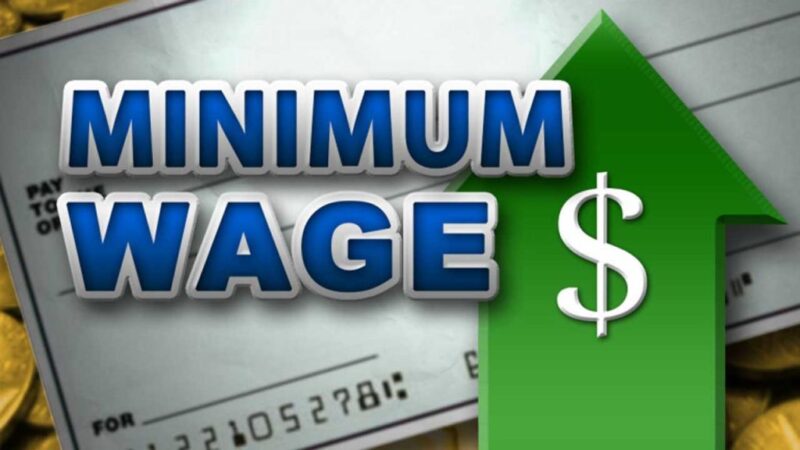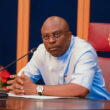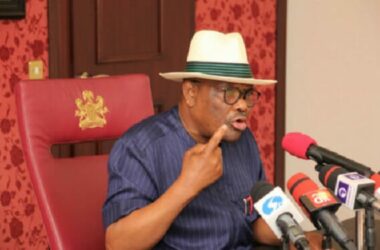The recent selective payment of the ₦70,000 minimum wage by the Federal Government has triggered discontent and frustration among public sector workers. Many federal employees, especially those in various Ministries, Departments, and Agencies (MDAs), including staff at federal universities, claim they have not received any increase in their wages despite the new minimum wage being signed into law months ago.
This situation has worsened the already challenging conditions faced by workers due to the removal of fuel subsidies, increases in fuel prices, and rising electricity tariffs. Workers are calling out the government for its perceived insensitivity, as the delayed payment has led to growing hardships, with many families struggling to cope with the high cost of living.
The ₦70,000 minimum wage was approved by President Bola Tinubu on July 18, 2024, following negotiations with various stakeholders, including the Nigeria Labour Congress (NLC), Trade Union Congress (TUC), and the Organised Private Sector (OPS). However, the implementation has been inconsistent, with conflicting reports coming from different government bodies.
According to the Accountant-General’s office, the new wage was implemented alongside the September salary payments. In contrast, the Budget Office reported that a flat sum of ₦40,000 was paid to all federal workers as a temporary measure. The payment was intended to serve as a placeholder while the official template for the new wage was being finalized.
Many workers, however, dispute this claim, stating that the ₦40,000 they received is not an adequate reflection of the promised increase. One anonymous worker from an MDA who spoke with VANGUARD, expressed deep frustration, saying, “We are fed up with the whole system. We do not know what the government wants us to do.
“It is bad enough that the government removed fuel subsidy and inflicted unbearable suffering and hardship, including hunger on workers and other Nigerians across the country, it is even worse than the minimum wage that has been signed into law for months, in fact, since July, has not been implemented.
“We even heard that some few workers in the core civil service have seen some amount added to their salaries. What sort of arrangement is that? What sort of selective payment is that? Are we not in the same country and experiencing the same hardship and hunger?
“It is pure discrimination and salary slavery designed to keep some of us in perpetual bondage. We have been frustrated, denied and even humiliated by the policies of the government. Many of us have resorted to sleeping in offices, while many others who do not want to sleep in offices trek long distances to work.
“To worsen the suffering, many of us now starve or indulge in self-imposed fasts to cope with the situation. We cannot meet responsibilities to our immediate and extended families. Our children have not resumed school as we have no money to pay their fees and other necessities. We do not know why the government has decided to inflict pain and suffering on us.
“Since the new minimum wage was signed into law, the government has also increased the pump price of petrol and electricity tariff, eroding the value of the new minimum wage that has not even been implemented.
“How does the government want us to survive this assault? Prices of essential communities have continued to rise without any palliative from the government. This is wicked and unfair.”
The situation has been further complicated by the lack of clarity from government officials.
While the Accountant-General’s office maintains that the September payments included the new minimum wage, a source from the Budget Office explained that the ₦40,000 was only a temporary payment until the official wage structure could be implemented. This inconsistency has left many workers confused and dissatisfied.
Union leaders have also voiced their concerns. Benjamin Anthony, President of the Amalgamated Union of Public Corporation, Civil Service Technical and Recreational Services Employees (AUPCTRE), criticized the selective payment, stating, He said, “An insignificant number of workers has received an addition to their monthly pay, but the majority have not received anything. What that means to me is that nobody has been paid the new minimum wage.
“We are in touch with the office of the Head of Service, HoS, and Integrated Payroll and Personnel Information System, IPPIS. They told us they are making efforts to pay. That to us is very bad news.
“It is as if they do not know that there is hunger everywhere and some children have not gone back to school because of lack of money. This is quite sad.”
Speaking to Vanguard on the situation, the President of the National Association of Academic Technologists, NAAT, Ibeji Nwokoma, said the delay has brought untold hardship to his members.
“Government has fallen short of expectations of public servants. Everybody was expecting that by now the new minimum wage would have been implemented to cushion the effect of an increase in the pump price of petrol.
“People are suffering, people are parking their cars and are unable to take their children to school and families can no longer cope with the present circumstances. We only hear that the government will pay today or pay tomorrow, nobody is sure.
“Government can no longer be trusted. The situation reduces productivity among the working class because people can no longer come to work and expect to go back happy. It’s really affecting productivity and confidence in the public service,” he said.
Similarly, university workers have expressed their grievances. Mohammed Ibrahim, President of the Senior Staff Association of Nigerian Universities (SSANU), noted that many university staff are struggling to cope with the high cost of living and the long distances they must travel to get to work.
He said, “University workers are worst hit as some of our members travel to far distances to get to work, which has in turn affected their morale in terms of productivity.
“We are frustrated with the delay and urge the government to commence the payment immediately to cushion the effect of high cost of living. The salaries members collect currently only take care of fuel and payment of transportation to work.”










